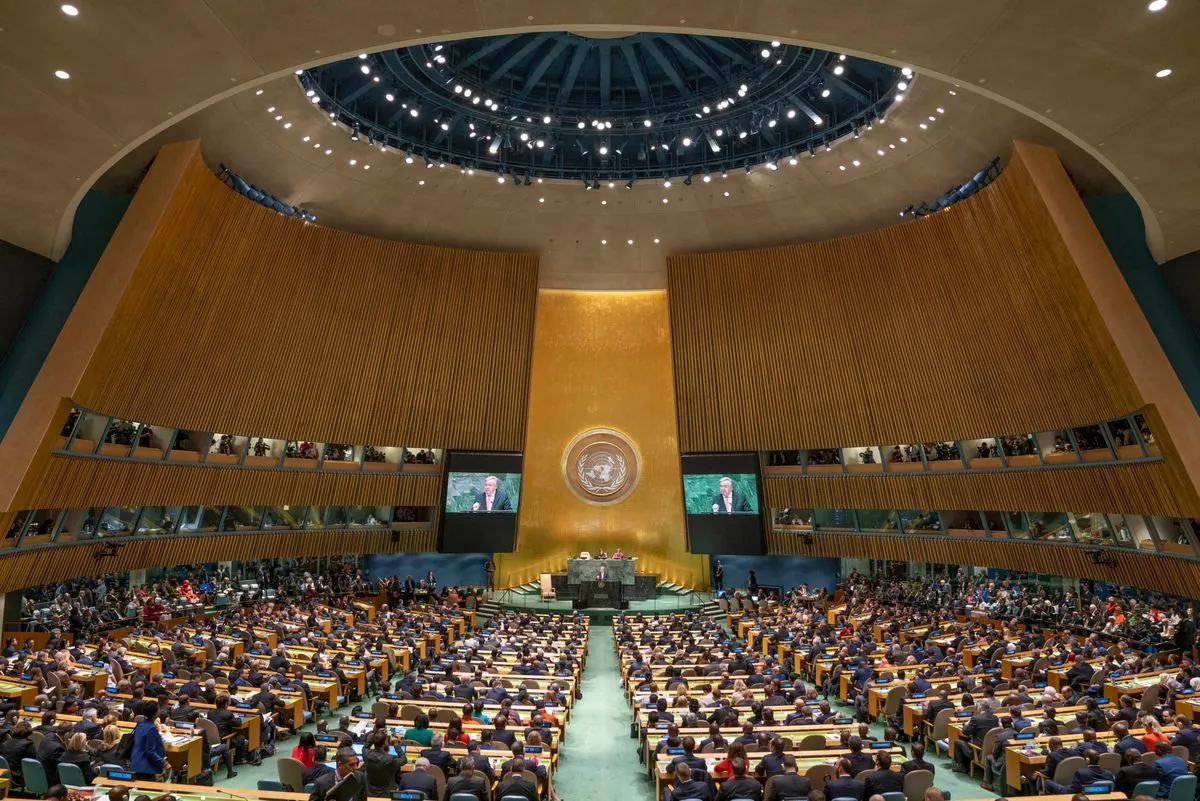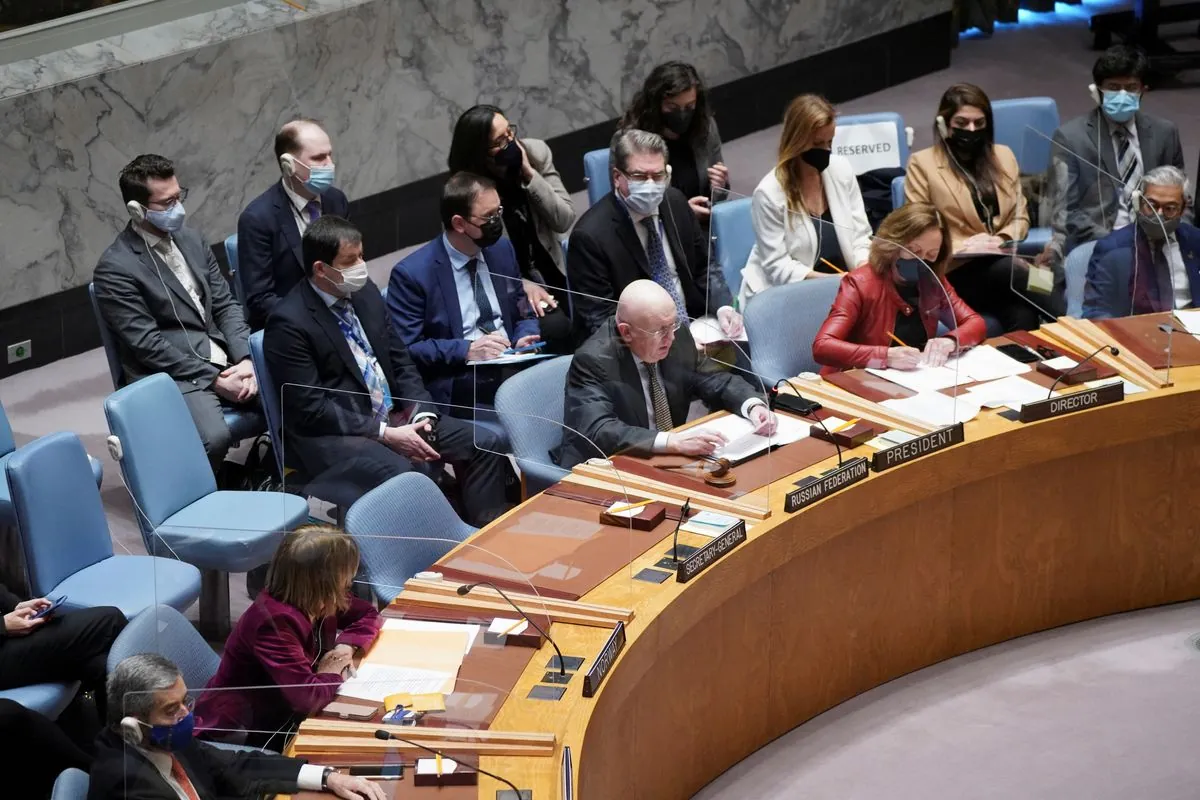UN Assembly Concludes Amid Growing Global Tensions and Calls for Unity
World leaders depart UN General Assembly with heightened concerns over escalating conflicts and international divisions. Despite gloomy outlook, adoption of "Pact for the Future" offers glimmer of hope for multilateral cooperation.

The United Nations General Assembly, one of the six principal organs of the UN, concluded its annual meeting on 2024-09-30, leaving world leaders grappling with escalating global tensions and a pressing need for renewed multilateral cooperation. The gathering, which brings together representatives from the UN's 193 member states, took place against a backdrop of ongoing conflicts in Gaza, Ukraine, and Sudan, as well as rising concerns about climate change and technological risks.
UN Secretary-General Antonio Guterres issued a stark warning about the state of multilateralism, emphasizing the urgent need to revitalize international cooperation. This principle, fundamental to the UN's founding in 1945 with 51 original member states, has been increasingly challenged in recent years.
The assembly was marked by a series of sobering speeches addressing global challenges. Leaders expressed deep concerns about the failure to adequately address climate change, growing inequalities between nations, and the potential risks associated with artificial intelligence and autonomous weapons systems.
A particularly tense moment occurred on 2024-09-27 when Israeli Prime Minister Benjamin Netanyahu addressed the assembly, emphasizing Israel's desire for peace. However, this message was starkly contrasted by simultaneous Israeli military actions near Beirut, highlighting the complex realities of ongoing conflicts.

Despite the generally gloomy atmosphere, the adoption of the "Pact for the Future" emerged as a positive development. This 42-page document aims to unite UN member nations in addressing contemporary challenges, from climate change to escalating conflicts. The pact's implementation will be crucial in determining its effectiveness in fostering global cooperation.
Smaller nations used the platform to call for more inclusive decision-making processes within the UN system. Barbados Prime Minister Mia Mottley emphasized the need for developing countries to have a greater voice in global institutions, reflecting a growing demand for reform in international governance structures.
The UN Security Council, responsible for maintaining international peace and security, held multiple meetings during the assembly week, underscoring the urgency of ongoing global crises. This increased activity highlights the UN's central role in addressing international conflicts, despite its limitations in enforcing resolutions.
U.S. President Joe Biden, in his final address to the assembly, struck a note of optimism. Reflecting on his long career in public service, Biden pointed to historical achievements such as the end of the Cold War and the dismantling of apartheid in South Africa as evidence that positive change is possible.
"Things can get better. We should never forget that."
As world leaders returned home, the challenge remains to translate the assembly's discussions into concrete actions. The UN, with its global reach and specialized agencies like WHO, UNESCO, and UNICEF, continues to play a crucial role in addressing international issues. However, the organization faces ongoing challenges in maintaining its relevance and effectiveness in an increasingly complex global landscape.
The conclusion of this year's General Assembly serves as a reminder of the critical importance of multilateral cooperation in addressing global challenges. As the world grapples with multiple crises, the UN's ability to foster dialogue and collective action remains more crucial than ever.


































